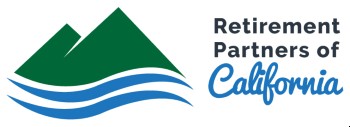The Hidden Perils of Conflict of Interest in 401(k) Plans: Navigating Fiduciary Responsibilities
The Fiduciary Responsibility
 At the heart of 401(k) management lies the concept of fiduciary duty. Plan sponsors, typically the employers, are legally obligated to act as fiduciaries. This means they must act solely in the best interest of plan participants and their beneficiaries. The Employee Retirement Income Security Act (ERISA) sets strict standards for fiduciaries, requiring them to:
At the heart of 401(k) management lies the concept of fiduciary duty. Plan sponsors, typically the employers, are legally obligated to act as fiduciaries. This means they must act solely in the best interest of plan participants and their beneficiaries. The Employee Retirement Income Security Act (ERISA) sets strict standards for fiduciaries, requiring them to:
- Act exclusively for providing benefits to participants and defraying reasonable plan expenses
- Carry out duties with the care, skill, prudence, and diligence of a prudent person
- Diversify plan investments to minimize the risk of large losses
- Follow the plan documents
Employers as Fiduciaries: A Critical Role
As plan sponsors, employers bear significant fiduciary responsibilities:
- Duty of Loyalty: Employers must put participants’ interests first, above their own or the company’s interests.
- Duty of Prudence: They must act with the care, skill, and diligence that a prudent person would use in similar circumstances.
- Duty to Monitor: Employers must continually monitor the plan, its investments, and service providers to ensure they remain appropriate and cost-effective.
- Duty to Disclose: They must provide participants with clear, accurate information about the plan and its investment options.
Failing to meet these fiduciary duties can result in legal liability for the employer, including potential lawsuits from plan participants or regulatory action from the Department of Labor.
Additional Considerations for Employer Fiduciaries:
- Objective Decision-Making: Employers must make decisions based on objective criteria, not personal preferences or business relationships.
- Avoiding Self-Dealing: Any actions that might benefit the company at the expense of plan participants must be strictly avoided.
- Expert Assistance: If lacking expertise in certain areas, employers should seek help from qualified professionals to fulfill their fiduciary duties.
- Documentation: Keeping detailed records of decision-making processes and rationales is crucial for demonstrating adherence to fiduciary responsibilities.
The fiduciary role of employers in 401(k) plans cannot be overstated. By understanding and embracing their responsibilities as fiduciaries, employers not only protect themselves from legal risks but also ensure that their employees’ retirement interests are genuinely prioritized. This commitment to fiduciary duty is essential in navigating the potential conflicts of interest inherent in retirement plan management and in fostering a secure financial future for plan participants.
My Thoughts: Over the years I’ve spoken with a few 401k plan sponsors that told me their 401k advisor is also the financial advisor to the owner or CEO or the CFO etc. That is going to bring your company and your retirement plan more scrutiny by the DOL on your next audit. Can you answer these questions?
- Is the CEO, CFO, etc getting preferential treatment with that advisor?
- Is the advisor charging a reasonable fee for the services provided to your company and your employees?
- Are the 401k fees and services in the best interest of the employees?
I suggest you have ample documentation that shows you have objectively looked at your retirement plan (get an outside review by an independent 401k specialist or your CPA) to clearly prove there is no conflict.
Conclusion:
Understanding the distinctions between 408(b)(2) and 404(a)(5) fee disclosures is crucial for proper retirement plan management. Plan sponsors must ensure compliance with both regulations to fulfill their fiduciary duties and provide participants with the information they need to make informed decisions. Together, these disclosures promote transparency, help control costs, and contribute to better outcomes for retirement plan participants.
Next step: Get a 401k Fee Benchmark review. Book a meeting below.
Retirement Partners of California Can Help!
We’ll design an Employee Financial Education Plan to help improve your 401k participant results.
Disclosures, Sources, and Footnotes
This information was developed as a general guide to educate plan sponsors, but is not intended as authoritative guidance or tax or legal advice. Each plan has unique requirements, and you should consult your attorney or tax advisor for guidance on your specific situation. In no way does advisor assure that, by using the information provided, plan sponsor will be in compliance with ERISA regulations.
Tracking #639996






